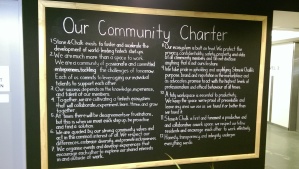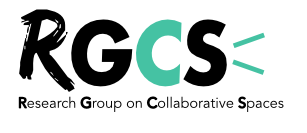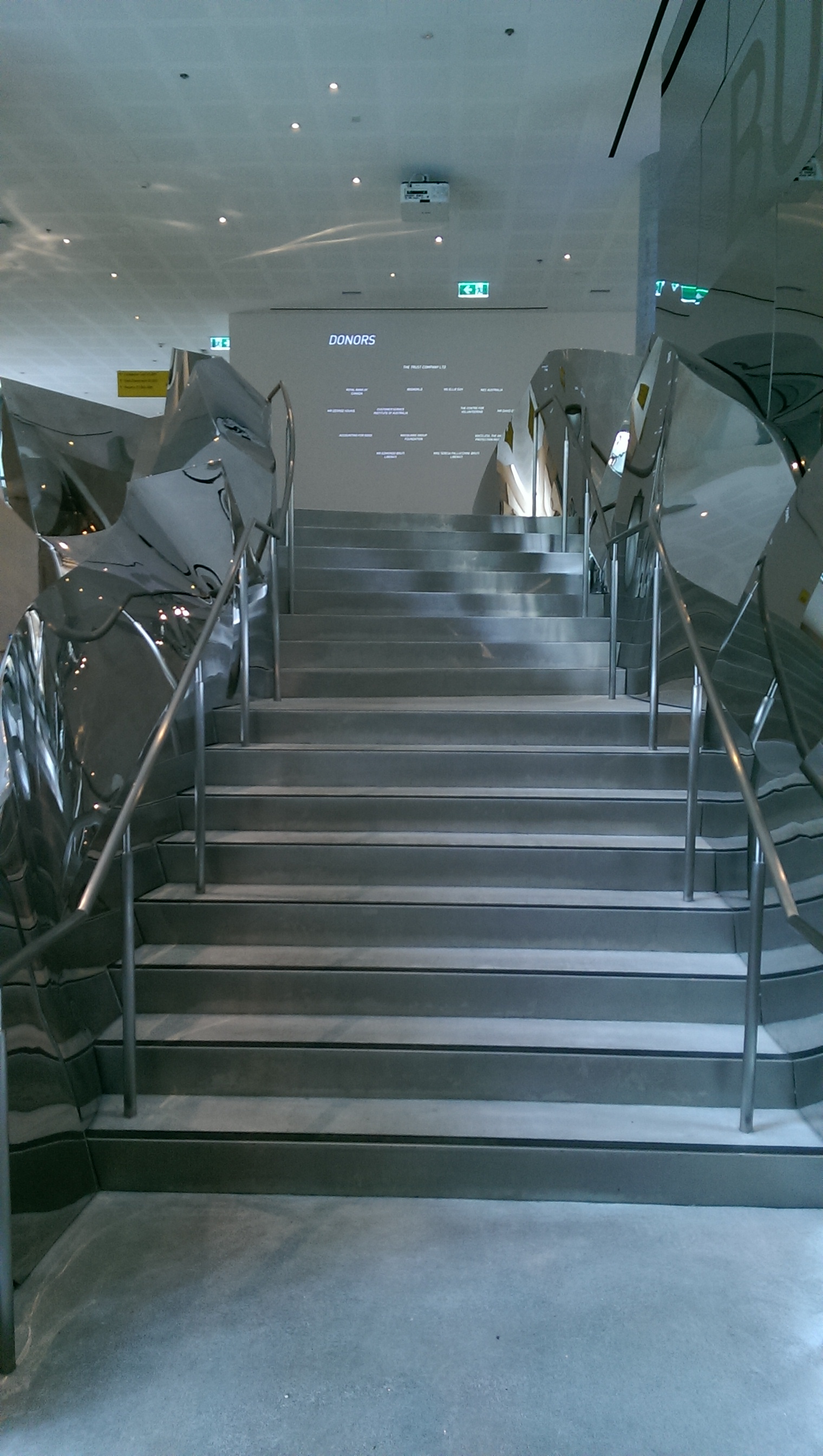I am just back from a trip in Singapore and Sydney which has been an opportunity to visit 15 collaborative spaces (e.g. coworking spaces, fab lab and maker spaces).
What a strange feeling… going so far, and feeling so close to what I already know.
Firstly, feeling so close to what I have seen in France and other countries. Same pieces of furniture (post-its, acoustic bubbles, iconic ping-pong tables, chalk boards, Ikea seats and tables…), same space design (welcome desk, general L or U shape of the place…), same emphasis on a ‘community’ (see the charter of Stone & Chalk below), general use of open spaces punctuated sometimes by small closed offices…

- Picture 1: The community charter of Stone & Chalk in Sydney
This makes me realize, again, how global our world has become. People share the same information, the same training (e.g. standardized MBA programs), the same providers and … Read more


